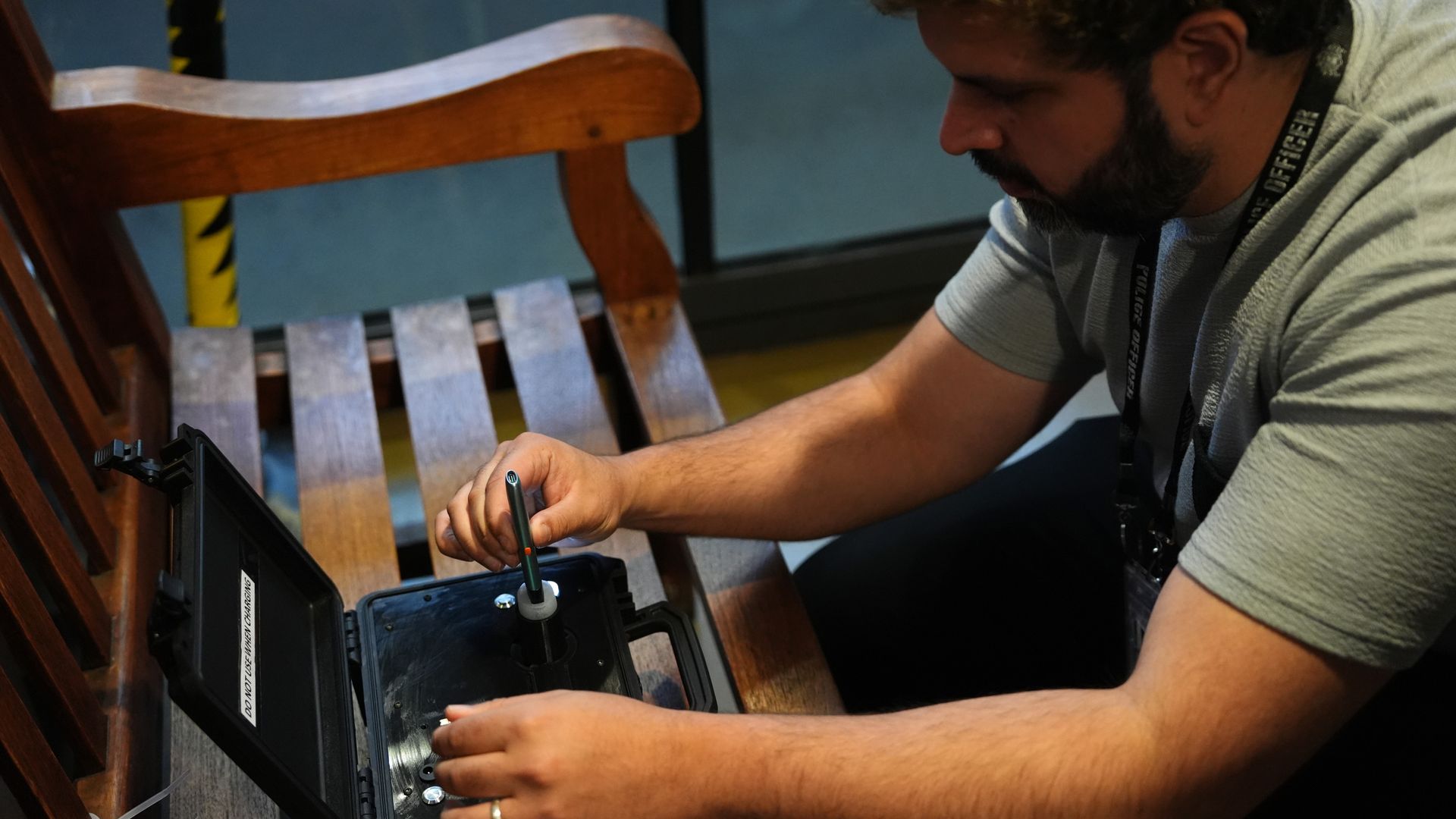Other News
German arms exports to Israel fall to zero after embargo

Read more on post.
Germany did not approve a single new arms shipment to Israel in the five weeks after Chancellor Friedrich Merz imposed partial export restrictions, it was revealed on Thursday.
Merz’s policy change last month aims to block any weapons that could be used in the Gaza war, but some members of the opposition want Berlin to go further.
The news that “no approvals” were granted came from the Economy Ministry in response to a query by Left Party lawmaker Ulrich Thoden.
The ministry said this had been the case between August 8 — the day of Merz’s decision — and September 12 when Thoden made the enquiry.
What is Germany’s position on arms exports to Israel?
In the letter, State Secretary Thomas Steffen said the government decided “on a case-by-case basis and in light of the respective situation after careful review, taking foreign and security policy considerations as well as legal requirements into account.”
He added that Germany “reaffirms the principles of its Israel policy and remains particularly committed to the protection of the State of Israel.”
On August 8, Merz announced that, for the time being, no exports of military goods to Israel that could be used in the Gaza war would be approved. He was responding to the actions of the Israeli armed forces in the Gaza Strip.
Up to that point, the German government had gradually increased its criticism of Prime Minister Benjamin Netanyahu’s government over its treatment of Palestinians but had refrained from imposing sanctions.
Netanyahu has condemned the move as “rewarding Hamas.” Merz coordinated the decision with Vice Chancellor Lars Klingbeil but nevertheless drew criticism from some lawmakers inside his own bloc.
What is the German Left Party’s stance on arms to Israel?
Thoden’s office told DW that it felt the government could go further and should implement an outright ban on all weapons.
“Even though it is now said that no permits have been issued in the short time since the Merz declaration, we as The Left Party remain skeptical about how the Merz declaration will be implemented in concrete terms,” it said it a statement.
“Politically necessary would be a complete halt to all [even already approved] arms exports to Israel and an end to the close arms cooperation between Germany and Israel.”
“Otherwise, the German government runs a serious risk of being guilty of complicity in the Israeli military’s crimes under international law against the Palestinian civilian population.”
Israel has repeatedly denied accusations that it has committed war crimes, including after an independent commission under the UN Human Rights Council found that it was committing genocide against Palestinians in Gaza.
What weapons has Germany exported to Israel?
Germany had rapidly increased its share of the Israeli weapons market, mostly with naval equipment like ships, submarines and torpedoes.
Until early August, Berlin had steadily increased exports following Hamas’s October 7, 2023, attack on Israel, licensing nearly half a billion euros in equipment under former Chancellor Olaf Scholz.
Merz’s own government initially cleared nearly €4 million (about $4.7 million) in sales during its first five weeks in office before the new curb.
Deliveries have included firearms, ammunition, weapon parts, special equipment for the army and navy, electronic equipment, and special armored vehicles.
They also include German-made Sa’ar corvettes, small warships with sophisticated radar equipment and cannons that have reportedly shelled targets in Gaza during the war.
Edited by: Zac Crellin
Breaking News
Mental health patients sleeping on sofas months after issues found

Read more on post.
Niall BlaneyBBC News NI
Some patients with serious psychiatric conditions are still sleeping on sofas at a Belfast mental health facility months after serious building problems were discovered there.
The Acute Mental Health Inpatient Centre opened just six years ago at a cost of £33m, but has been dogged with issues.
Rot and black mould were previously found in the building – which has continued to suffer from newly-discovered leaks – and the entire water system now needs replaced, which will add millions of pounds to existing repair costs.
The Belfast Health Trust said no patients have had to move out as a result of the building issues, and works on two damaged bedrooms are due to be completed in “the coming days”.
The centre at Belfast City Hospital provides 74 acute mental health en-suite bedrooms, including six psychiatric intensive care beds.
Last September, it was revealed that leaking pipes in the Acute Mental Health building had caused £4m worth of damage. Water had been dripping from various pipes since 2022 causing corrosion within the hot water system and damage to walls and floors.
At the time, it was thought damage was confined to a small area.
But further exploration which involved ripping up two bedrooms identified more extensive damage, including leaking pipes across the building which had saturated floors and caused metal stud walls to rot and mould to grow on plaster.
One bedroom previously had an ant infestation and was closed immediately.
 Google
GoogleIn March, the BBC revealed that repair costs for the building could be up to £10m.
Last month, the health trust said the projected costs for the newly-discovered water system issues were up to £6m, not including legal fees.
Two bedrooms which had suffered damage were due to be repaired by the end of this summer. As a result of their closure, capacity at the unit has been stretched, leading to patients forced to sleep on sofas.
The Belfast Trust said: “Works on the [bedrooms] are almost complete and are subject to final checks… it is expected that both rooms will be available for the delivery of services in the coming days.”
Plans to rehome patients
While a plan has been put in place to temporarily rehome patients at Knockbracken Healthcare Park south of Belfast, that facility has not been used to date.
The trust is taking legal advice over where liability for the building failures lies.
The facility was built by Graham BAM Healthcare Partnership (GBHP), a joint partnership between County Down-based Graham Construction and BAM Ireland in the Republic of Ireland.
GBHP has also been involved in Belfast’s new maternity hospital which remains unopened and almost £50m over budget.
The Belfast Trust said it was “currently working with its legal advisors to appoint independent specialists to undertake a comprehensive review of the water system and any potential sources of water ingress and to help identify liability for the costs of the remediation work”.
In a response to the BBC, the trust said a survey of the entire building had taken place ahead of the repair works.
In August 2024, the body which inspects healthcare facilities – the RQIA – issued a notice to the trust telling it to replace doors and door handles at the facility because of potential patient self-harm as a result of ligature risks.
This was to be complied with by 17 February this year, with an extension granted to April, and now compliance required by this November.
Other News
Palestinian GAA club’s visas for summer tour of Ireland were refused due to ‘risk of overstay’
Other News
Police launch vape-spiking crackdown after teens as young as 14 admitted to hospital
-
Culture3 days ago
Taylor Swift’s new cinema outing generates more than €12million in just 24 hours
-
Politics3 days ago
European Parliament snubs Orbán with vote to shield Italian MEP from Hungarian arrest
-
Health3 days ago
EU renews support for WHO’s Universal Health Coverage Partnership
-
Culture2 weeks ago
Life, loss, fame & family – the IFI Documentary Festival in focus
-
Culture2 months ago
Fatal, flashy and indecent – the movies of Adrian Lyne revisited
-
Culture3 days ago
Twilight at 20: the many afterlives of Stephenie Meyer’s vampires
-
Environment6 days ago
Key oceans treaty crosses threshold to come into force
-
Culture1 week ago
Farewell, Sundance – how Robert Redford changed cinema forever

















































